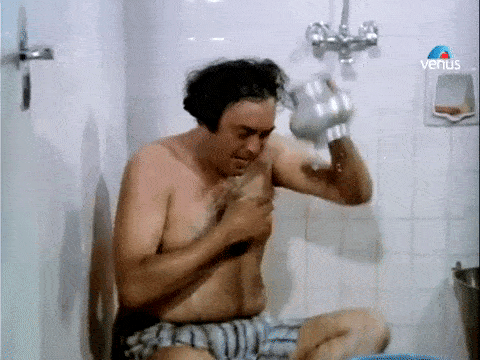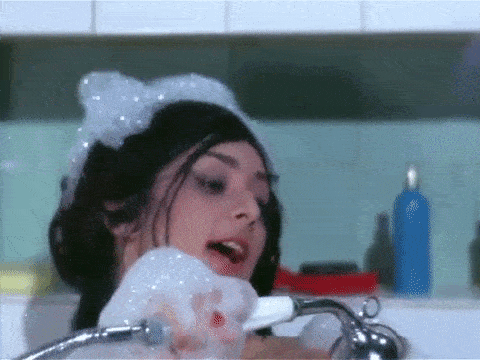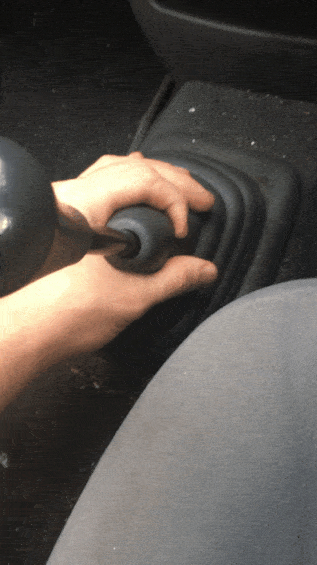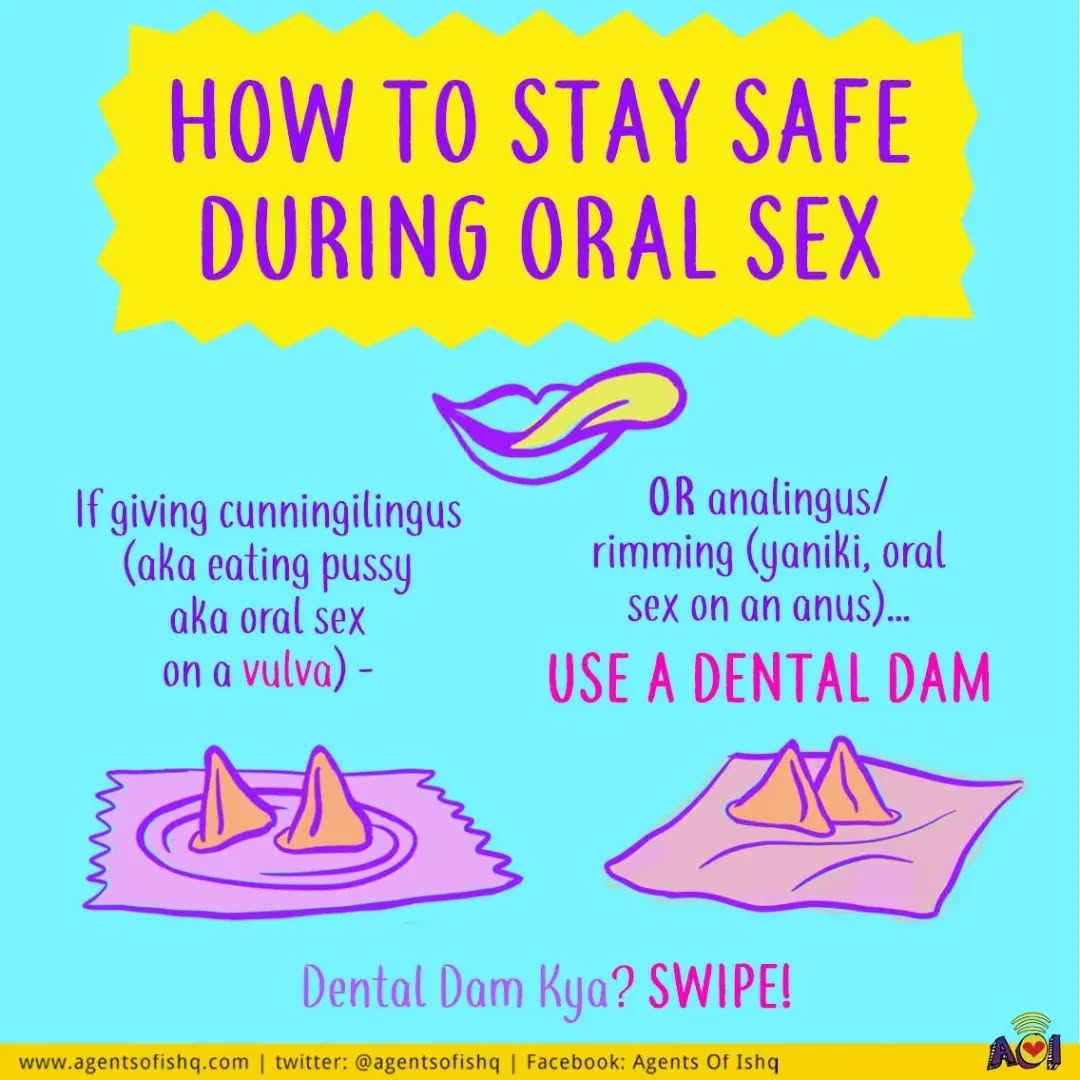Every summer as we eat mangoes, complain about the heat and take afternoon naps, we somehow manage to have lazy thoughts about romance under the khad-khad of the fan. But wait, are your slow, sexy thoughts coming to a fast stop because of some heat-related embarrassment?Everybody tends to sweat a little extra in the hot months, especially in your nether-lands. Don’t feel shy. And if you’re not careful about the unpleasant wala hot and moist feeling, you could get an infection. So, here are some tips to give your privates a little extra love this summer. (Some of these tips will be useful months from now when summer is a distant memory too.)
So this summer, beat all those khujlis, khich-khichs and itch-itches in awkward places, and just use our tips on keeping clean instead.General rules for everybody (All genders)
1. Take a bath daily. Why? Because germs accumulate on our body all the time! Our skin produces its own sweat and natural oils, and all these combined with bacteria can cause body odours or even skin infections if allowed to build up. Hey, while we’re at it, let’s settle one of our biggest moral dilemmas in life here only: morning bath or evening bath? Well, it depends on what works for you. If you have oily skin or work out in the morning, morning bath is the way to go. If you have drier skin or if you work out in the afternoon or evening, bathing at night might be a better option.
2. When you do, spend a little extra time washing your privates. Why? For all of us, the genital area has lots of little folds and crevices. It’s easy for germs and body secretions to build up in these hard-to-reach places, so it’s especially important to remember to wash them.
3. Wear loose underwear made of natural materials, like cotton.Why? It helps prevent sweating in the crotch area, which is good for you both bacteria-wise and odour-wise.
Genital hygiene for lady bodies
1. While it’s a good idea to soap up every day, you don’t have to wash your vulva with soap, just warm water will do the trick. But if you really feel the need to use soap, use a simple, mild glycerine based one. It’s better for you and also cheaper than a coconut-flavoured body wash, which promises something called microbeads. Why? Your vulva has a very specific pH balance (between 3.5 and 4.5), which keeps it at just the right level of acidic to allow good bacteria to thrive, helps kill harmful bacteria and keep the vagina clean. Using harsh soaps can upset that delicate balance.
2. Don’t use soap to clean your vagina. Why? Your vagina cleans itself! It contains good bacteria that act as self-cleaners, and you don’t want to wash these away with soap. Using soap would not only kill good bacteria (which can help you keep you safe from yeast infections and bacterial vaginosis), but it also alters that very precise pH balance again. By the way, it’s that very specific acidic pH level that can sometimes stain the inside of your underwear.
3. Avoid things like douching and “feminine sprays”.Why? With luck you have never considered these unwise activities. Douching is when people wash out their vaginas with water or a chemical solution. When done for medical reasons on doctor’s orders, this is fine, but otherwise, just avoid, for the same reasons we were talking about when we said don’t use soap. Products like these often contain really harsh chemicals, and we don’t want those messing with our skin or our friendly bacteria.
4. Change your bra at least once a week, but preferably around once in three days. If you’ve been sweating, which most of us do in the summer, a lot—change daily. Why? The closer an item of clothing is to your body, the more sweat, germs and dirt it picks up, and bras are, of course, pretty close to your body.
5. When having sex, change condoms between oral/anal sex and vaginal sex.Why? The anus and mouth both contain different kinds of bacteria that you don’t exactly want to introduce to your vagina. The anus could also have traces of faecal matter, which obviously has no business in your vagina.
6. If you use sex toys, clean them when you’re done.Why? Because they pick up body fluids and bacteria, and putting them away without cleaning them is both icky and ups your chances of infections from fungus or other nasties that may be on them.
7. Try to pee soon after having sex. You don’t have to necessarily rush off to the bathroom right after (unless you badly have to pee anyway), but it’s a good idea to go soon after, or at least, don’t hold it in.Why? It’s known to help prevent UTIs, which can be super painful. During sex, the urethra comes in contact with bacteria from the genitals and the mouth, and this can introduce bacteria into the system. Peeing soon after has been shown to help reduce the risk of getting one, but the exact reason why isn’t fully understood yet.
8. Wash soon after you have sex too. Again our suggestion is not to jump straight from your happy feelings to the bathroom. But do wash relatively soon. Why? Lots of different body fluids come into contact with the area when you’re having sex, especially if you’re having a really good time. You need to wash away all those sexual secretions + sweat to make sure you don’t get an infection caused by a build up of strange bacteria.
9. If you use toilet paper, wipe front to back. As they say to children, from su-su end to potty-end.Why? It prevents faecal matter or germs from the anus getting in touch with the vulva. Remember, the vulva is quite sensitive and has its own army of native bacteria, you don’t want to go introducing new ones to the region.
10. Change your pad every three to four hours, and a tampon every four to eight hours. If you use a menstrual cup, empty it at least twice a day.Why? Changing your pad frequently prevents the growth of bacteria in the collected blood. It’s important to change tampons frequently to prevent getting Toxic Shock Syndrome.
11. Remember that it’s completely normal for your privates to have a particular smell. Why? A lot of people feel worried or insecure about their own smells, which isn’t necessary at all, because it’s completely natural. And unfortunately our worries are increased because we have rarely a way of comparing the smells or discussing it with someone. Unless you detect a fishy odour—which could be a sign of a yeast infection—you’re fine! It’s also normal to have some amount of vaginal discharge through the month, and unless it changes suddenly in odour or consistency, there’s nothing to worry about it.
12. You can wax or shave down there if you want, but it doesn’t make you any cleaner.Some people like to shave or wax for aesthetic reasons, or because they feel the hair traps odour, but doctors say that it doesn’t actually make you any cleaner. Why? If you do choose to wax, go to a clean salon, or use waxing strips and clean them thoroughly once you use them if they’re reusable, else just go with disposable. Avoid wearing tight underwear for a few days after waxing. If you choose to shave, do it carefully and lather up well before you do to prevent ingrown hairs. Use a sharp, fresh razor—never a blunt one—because you could cut yourself, and that would lead to a lot of pain and open up the possibility of the cut getting infected. Just like with waxing, avoid tight underwear to prevent ingrown hairs.
Genital hygiene for men
1. The genital area should always be dry. After using the toilet or bathing or swimming, remember to wash and dry, and wipe clean with a towel. Why? Bacteria and fungi thrive especially in dark, moist places. Keeping this area dry helps prevent infections like jock’s itch, an itchy type of ringworm, from occurring.
2. Men should remember to shake the penis gently after peeing. This helps any drops of urine or moisture to fall off the penis. After urinating, the penis should be dried too.Why? The same reason as above. It’s important to keep the penis dry to prevent infections.
3. Adult men should make it a practice to pull back the foreskin to wash the head of the penis while bathing. After doing this, don’t forget to return the foreskin gently to its original position. Why? This helps clean away any smegma. Smegma is an oily whitish substance that’s a combination of dead skin cells, skin oils and moisture, and it tends to collect under the foreskin. It can have an unpleasant odour, and so it’s important that it doesn’t build up.
4. Young boys whose foreskins can’t be pulled back easily yet should avoid step 2.Why? Because pulling the foreskin back forcibly before it’s naturally ready to be pulled and pushed back easily can cause damage and pain.
5. Clean the anus last with lots of water and mild soap, and pat dry. Why? When cleaning the genital region, getting to the anus last prevents faecal matter and bacteria from coming into contact with the penis and urethra.








































































































































































































































































































































































































































































































































































































































































































































































































































































































































































































































































































































































































































